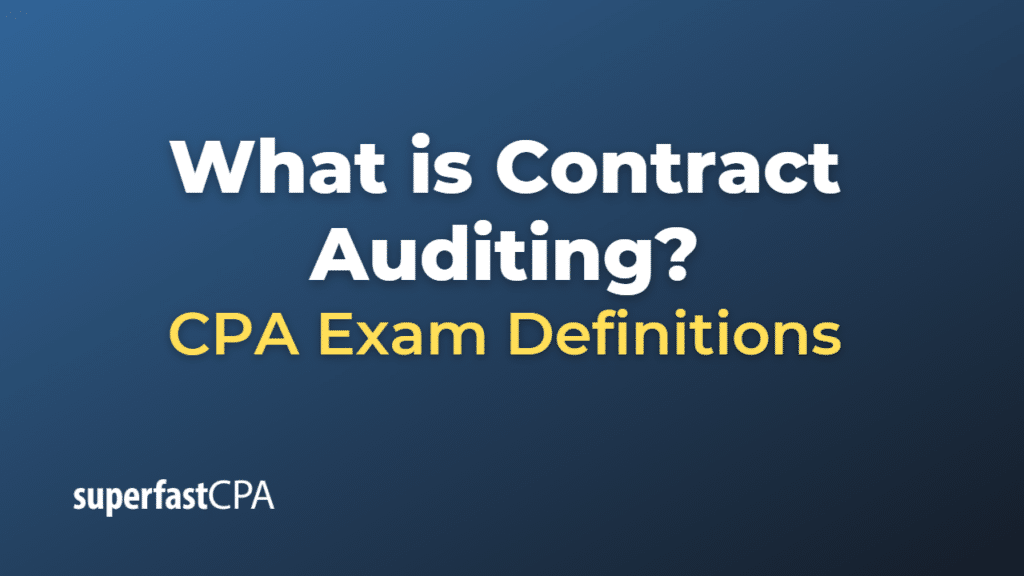Contract Auditing
Contract auditing is the process of examining, assessing, and verifying the financial, operational, and performance aspects of a contract or agreement between two or more parties. The primary goal of contract auditing is to ensure that the terms and conditions of the contract are being met, that the contract is being executed in compliance with applicable laws and regulations, and that the financial and operational aspects of the contract are accurate and transparent.
Contract auditing can be conducted by internal or external auditors, depending on the organization’s needs and requirements. The process typically involves:
- Reviewing the contract and understanding its terms, conditions, and requirements.
- Evaluating the contractor’s performance in relation to the agreed-upon terms and conditions, including the quality of work, adherence to timelines, and cost-effectiveness.
- Assessing the contractor’s financial statements, invoices, and other relevant documentation to ensure accuracy, transparency, and compliance with accounting standards and regulations.
- Identifying any instances of non-compliance, inefficiencies, or potential risks associated with the contract.
- Providing recommendations to improve contract management, mitigate risks, and enhance overall contract performance.
Contract auditing is essential for maintaining accountability and transparency in contractual relationships, minimizing risks, and ensuring that both parties fulfill their obligations in accordance with the agreement. This process is commonly used in government contracting, construction projects, and other industries where large and complex contracts are involved.
Example of Contract Auditing
Let’s consider a hypothetical example involving a government agency and a construction company.
Scenario: A government agency has awarded a contract to a construction company to build a new bridge. The contract’s total value is $50 million, and it is expected to be completed within two years. The government agency wants to ensure that the construction company is meeting the contract’s terms and conditions and is using the allocated funds appropriately.
In this case, a contract auditor might conduct the following tasks:
- Review the contract: The auditor starts by thoroughly reviewing the contract, understanding its terms and conditions, milestones, payment schedules, and performance expectations.
- Evaluate performance: The auditor visits the construction site to assess the progress of the project. They check whether the construction company is on track to meet the deadlines, adhering to safety regulations, and using the appropriate materials and techniques as specified in the contract.
- Assess financial documentation: The auditor reviews the construction company’s financial records, including invoices, receipts, and bank statements, to ensure that the funds are being used as specified in the contract. They also verify that the amounts billed align with the completed work and milestones.
- Identify non-compliance or risks: During the auditing process, the auditor might identify instances of non-compliance, such as delays in the project, cost overruns, or deviation from the agreed-upon construction standards. They may also identify potential risks, such as a shortage of materials or a lack of skilled labor, which could impact the project’s timeline or quality.
- Provide recommendations: Based on the audit findings, the auditor provides a report to the government agency, detailing any areas of non-compliance or inefficiencies and suggesting recommendations for improvement. The government agency may then take corrective actions, such as renegotiating certain contract terms, implementing stricter oversight, or withholding payments until the issues are resolved.
In this example, contract auditing helps the government agency ensure that the construction company is delivering the project according to the agreed-upon terms, using the funds appropriately, and minimizing risks. This process ultimately contributes to better project management, accountability, and transparency in the contractual relationship.













